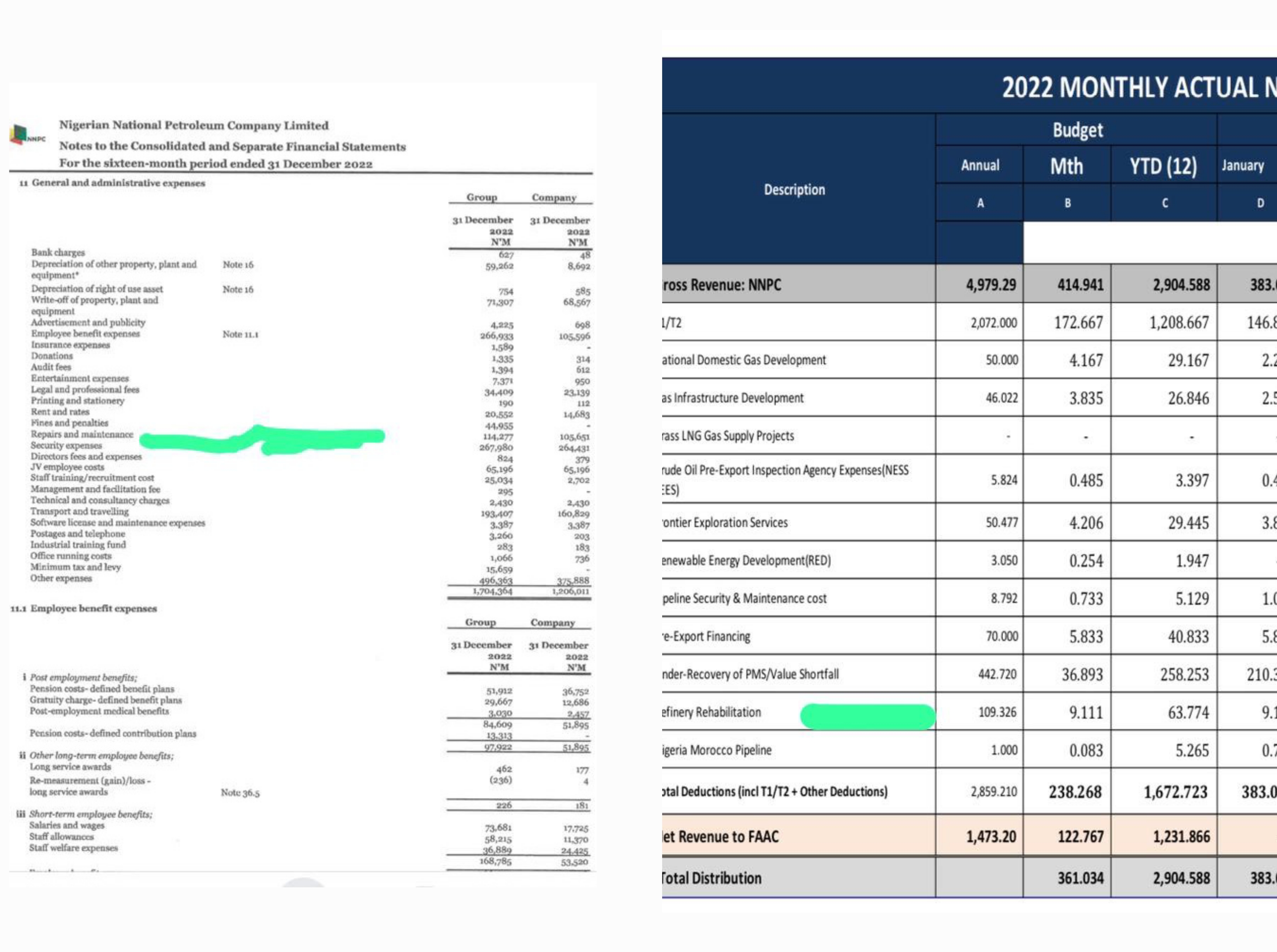
All of the four have 445,000 barrels per day production capacity.
The Nigerian National Petroleum Company Limited (NNPCL) in 2021 noted that it spent N8.3billion every month to rehabilitate refineries.
The company had stated this during a presentation to the Federation Accounts Allocation Committee.
There are four refineries under the NNPC, they are the Port Harcourt refineries, Kaduna Refining Production Company, and the Warri Refining Production Company.
All of the four have 445,000 barrels per day production capacity.
In the 2022 financial statements, NNPC group noted that it spent the sum of N114.2 billion on repairs and maintenance, per official data provided by it.

Usually, repairs and maintenance are earmarked for refineries, this is as Pipelines which also may require some maintenance have its own cost earmarked under the cost of sales while repairs and maintenance are labelled under “General and Administrative expenses”.
Specifically also, documents seen by SaharaReporters noted that between January and July, 2022, the NNPC spent N54 billion on refinery rehabilitation. This is based on the August 2022 NNPC FAAC report.
With NNPC stating that it spent N100 billion in 2021 and another N114 billion recorded for egg full year 2022, it would mean that between 2021 and 2022, NNPC spent N214 billion on rehabilitation of refineries, repairs and maintenance.
Despite these expenditures, the refineries have failed to work.
In June 2022, the Chief Executive Officer of the NNPC, Mele Kyari was quoted as stating that the refineries have stopped functionality.
More recently, the government promised to revive Port Harcourt refinery but failed to fulfil its promise. The NNPC has continued to promise Nigerians since 2021, that the refinery will function but has not fulfilled its promises since then.
Once operational, the Port Harcourt refinery is expected to have a production capacity of 210,000 barrels per day.
Nigeria has relied heavily on importation of petroleum in the absence of functional refineries, a situation that has driven up the landing cost of fuel.
This development has also been blamed in part for the surge in inflation in Africa’s largest economy, especially after the government under the administration of Bola Tinubu yanked off fuel subsidies.
Many Nigerians have expressed concerns over the ability of the NNPC to make refineries functional again, given heavy investments in the past and failure there-in.
Follow the Sahara Reporters channel on WhatsApp: https://whatsapp.com/channel/0029VaFClvtH5JM6SSsP7M2Y
